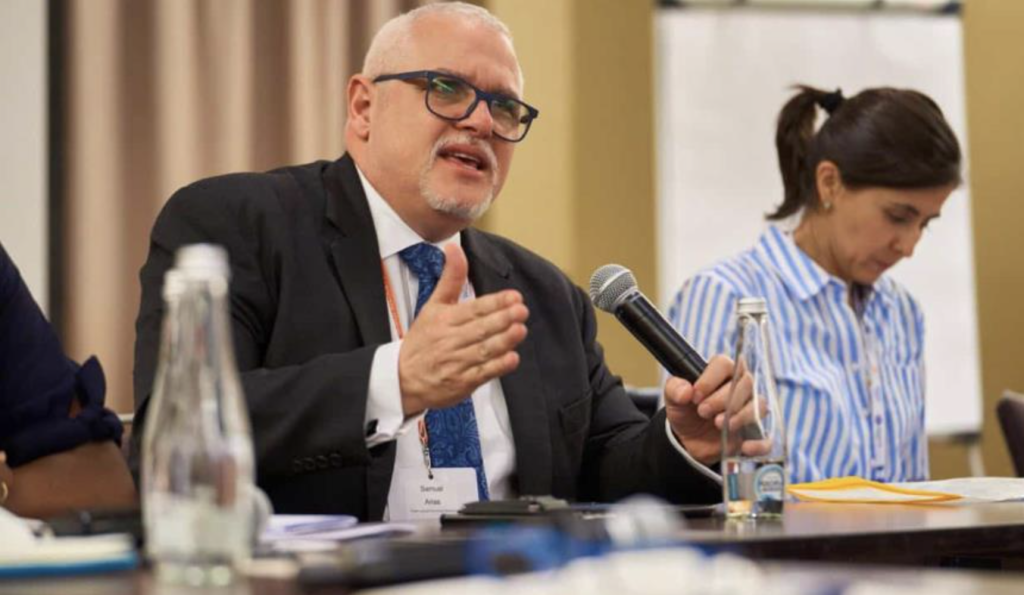
Santo Domingo will host the inaugural International Open Justice Conference on 27-28 August 2025, at the Hotel El Embajador. The Dominican Judicial Branch has organized the conference in line with national efforts to promote accessible and people-centered justice.
The conference serves as a vital platform for discussing and advancing initiatives that promote transparency within the justice system. With an emphasis on people-centered approaches, participants will engage in meaningful dialogues aimed at reforming and improving justice practices.
The conference will bring together national and international experts to showcase advancements in Latin America and the Caribbean while addressing ongoing challenges in the field of open justice.
This high-level regional event, organized by the Judicial Branch of the Dominican Republic and the International Open Justice Network (RIJA), in partnership with the Open Government Partnership (OGP), will bring together representatives from judicial branches, civil society, international organizations, and academics from Latin America, the Caribbean, and other global regions.
The conference aims to achieve several key objectives:
- Showcase advancements made by judicial systems in the realm of open justice.
- Facilitate the exchange of experiences and best practices that promote transparency, citizen participation, and accountability within the judicial sphere.
- Address pending challenges in the pursuit of a more accessible, inclusive, and people-centered justice system.
The International Open Justice Conference promises to be a pivotal gathering for fostering greater transparency and public engagement in judicial systems across the region and beyond.
Overall, the event is described as part of ongoing efforts of the Dominican Judicial Branch for increased accessibility, transparency and public trust in the local justice system.
Supreme Court of Justice judge, Samuel Arias Arzeno, who is in charge of the organization of the Congress, has highlighted the local efforts and the country’s commitment to “open justice” and its focus on citizen participation in shaping the future of the judiciary.
Judge Arias Arzeno emphasized that the Dominican justice system has actively sought input from a wide range of stakeholders, including judges, lawyers, civil society representatives, and ordinary citizens, to improve its operations. This collaborative approach has led to meetings aimed at developing plans and policies for the justice system, including the crucial Decennial Strategic Plan for the Judiciary.
“Participants in the Decennial Plan had the opportunity to debate planning and decision-making about the type of judicial system they desire for the next 10 years,” Arias Arzeno stated. “Our decennial strategic plan focuses on our future, and the Dominican Judicial Observatory is our present.”
A key aspect of this open justice initiative is the use of digital platforms for citizens to submit ethical complaints against judges or judicial personnel. Arias Arzeno noted that this reflects both transparency and citizen empowerment.
Furthermore, the adoption of an official framework of norms and policies, such as those governing social participation and data protection, has institutionalized and ensured the sustainability of an open and enduring justice system.
Prioritizing mediation and amicable justice
Judge Arias Arzeno, who presides over the First Chamber of the Supreme Court of Justice, reiterated the judiciary’s commitment to supporting mediation services through Community Justice Houses and Judicial Branch Mediation Centers. These initiatives offer an alternative to traditional court proceedings, presenting “something better than the punitive face habitually seen in the courts.”
Arias Arzeno made his remarks during his presentation on “Towards a Multi-sectoral Coalition to Strengthen Openness and Public Trust in Justice Institutions” at the World Justice Forum 2025 in Warsaw, Poland. This global forum, organized by the World Justice Project (WJP), brought together political leaders, legal experts, human and environmental rights advocates, journalists, and government auditors to seek solutions and develop action-oriented strategies for strengthening open governance and inter-sectoral collaboration.
Read more:
Poder Judicial
Diario Libre
17 July 2025

